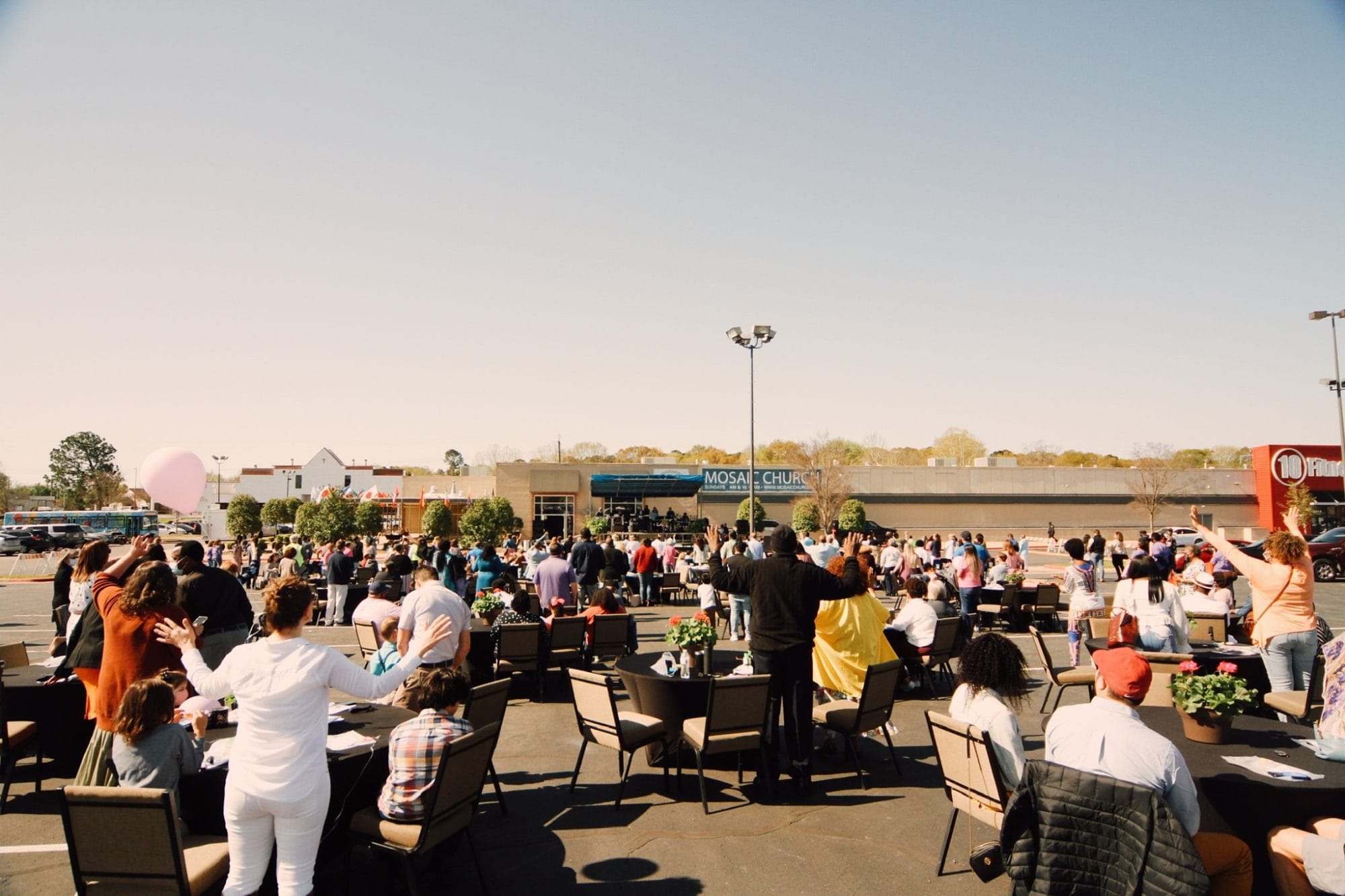Good Works That Shine a Light
It was a Sunday like any other at Mosaic Church. And all of a sudden—it wasn’t.
Pastor Mark DeYmaz was in the middle of his sermon when he noticed the medical team get up and walk out. He kept preaching. Emergencies weren’t unusual at this inner-city church.
A man had come through the woods behind the church. He was holding two babies. One was already dead. The other wasn’t breathing.
The medical team took the unresponsive child.
They tried to resuscitate her.
Again and again, they tried.
Until they heard it—
A cry.
Small, shrill, but alive.
Everyone on the team sighed in relief.
“That’s the environment we’re in here,” Mark DeYmaz says. “We’ve had twenty deaths on or adjacent to our property in the last four and a half years.”
Poverty, gun violence, addiction, and homelessness are realities Mosaic Church faces every day on the corner of Colonel Glenn/Asher and University in Little Rock. People in this part of the city need more than an encouraging word on Sunday to get them through the week.
They need a place to shower and a hot meal.
They need freedom from addiction.
They need medical assistance they can’t afford.
“We engage people at the bridge of Christ’s humanity, hoping you can earn the right someday to help people someday cross the bridge of His divinity,” Mark says. “This is Matthew 5:16, that good work is shining a light on Jesus, and it becomes a credible witness of the Gospel to others.”
That’s what Mosaic has been doing for over 20 years in a community forgotten by many.
Hard Questions
Mosaic began with 40 believers across the city asking hard questions. Why didn’t churches reflect the diversity of the city? Churches in the first century were multiethnic and economically diverse, so why did Sunday morning feel so segregated in the twenty-first-century church?
This group wanted a church that resembled the kingdom of God—where black and white, rich and poor, native-born and immigrant could walk, work, and worship God together as one.
In the summer of 2001, the group started meeting. They had no building, so they rotated between locations before landing at a tiny church across the street from the University of Arkansas at Little Rock (UALR) campus.
After two years, they grew to around 100 people and started renting an 80,000-square-foot abandoned Walmart down the street. “This part of town was very much the inner city, at-risk and under-resourced people, abandoned or underutilized buildings, highest violent crime in the city at the time,” Mark says. “But back in the ’60s and ’70s, this corner was the corner in Arkansas. Over time, it became neglected, falling into disrepair and ill repute.
“Our people lived with flea bites for six months because of feral cats in the building. It had drop ceilings, and we had to hire animal trappers to come and trap all the animals living in the place. Back then, we didn’t have chairs. So, people brought their chairs, like soccer mom chairs. There were no children’s classrooms. The bathrooms were all dysfunctional. You went into three toilets, and maybe one worked.”
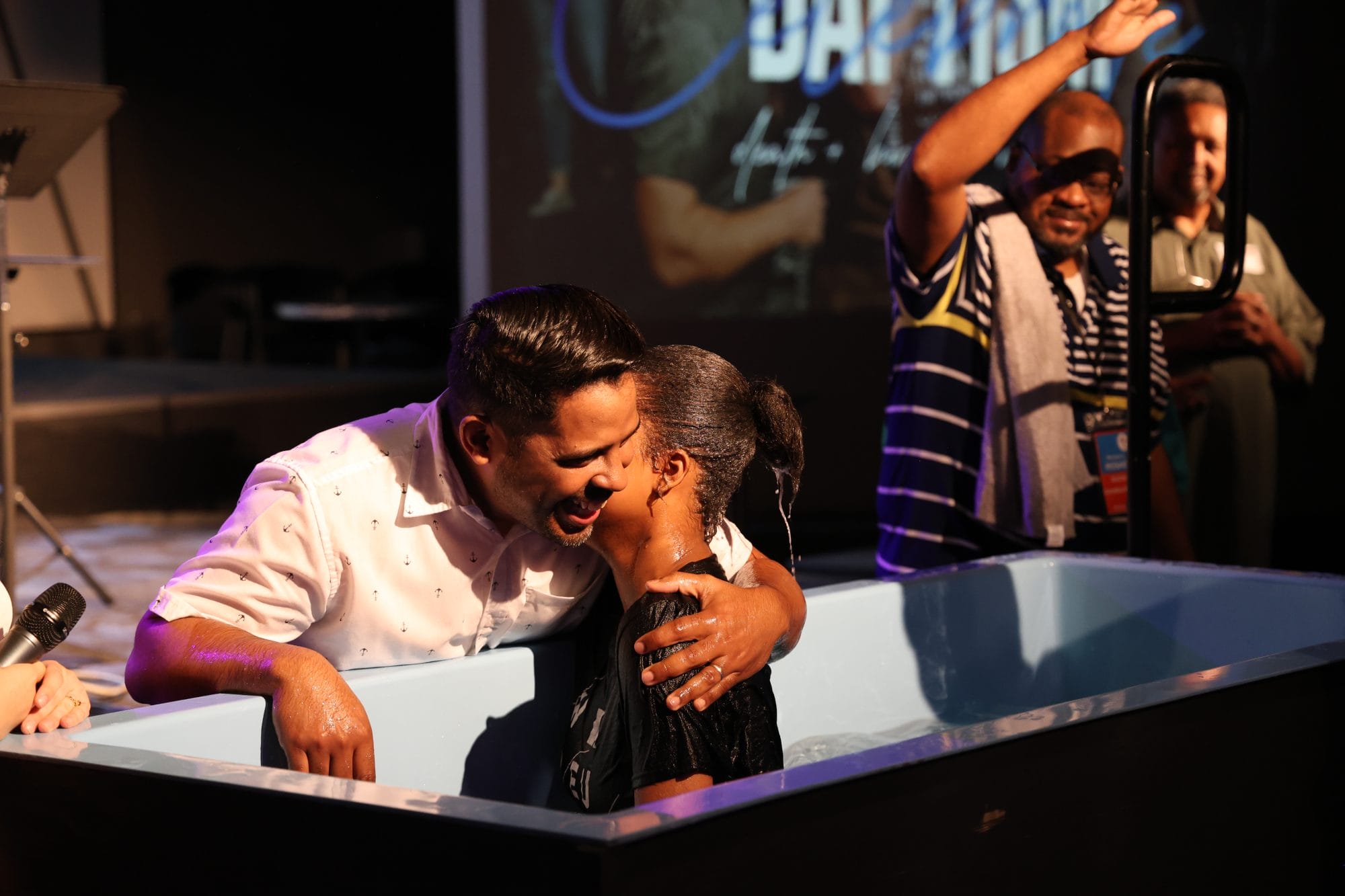
Community-Wide Renewal
Mosaic’s people didn’t show up for bells and whistles. The church had none. What they had was a passionate desire to be a different kind of church. They endured the gritty conditions in a month-to-month lease for more than 12 years before buying their own building in what they’ve helped to define as Little Rock’s emerging University District. As a church, they’ve brought the once-abandoned 100,000-square-foot space back to life to serve the needs of a community many gave up on.
Vine and Village, the church’s 501(c)(3) umbrella non-profit, operates out of the building. Among other services, Vine and Village houses the largest food distribution center in Little Rock, The Orchard, 48 out of 52 Sundays annually. On Fridays, low-income and unsheltered neighbors can come to the Hope Center to shower, do laundry, and eat lunch prepared in the church’s commercial kitchen. An award-winning program uses chess to teach reading and problem-solving skills to at-risk youth.
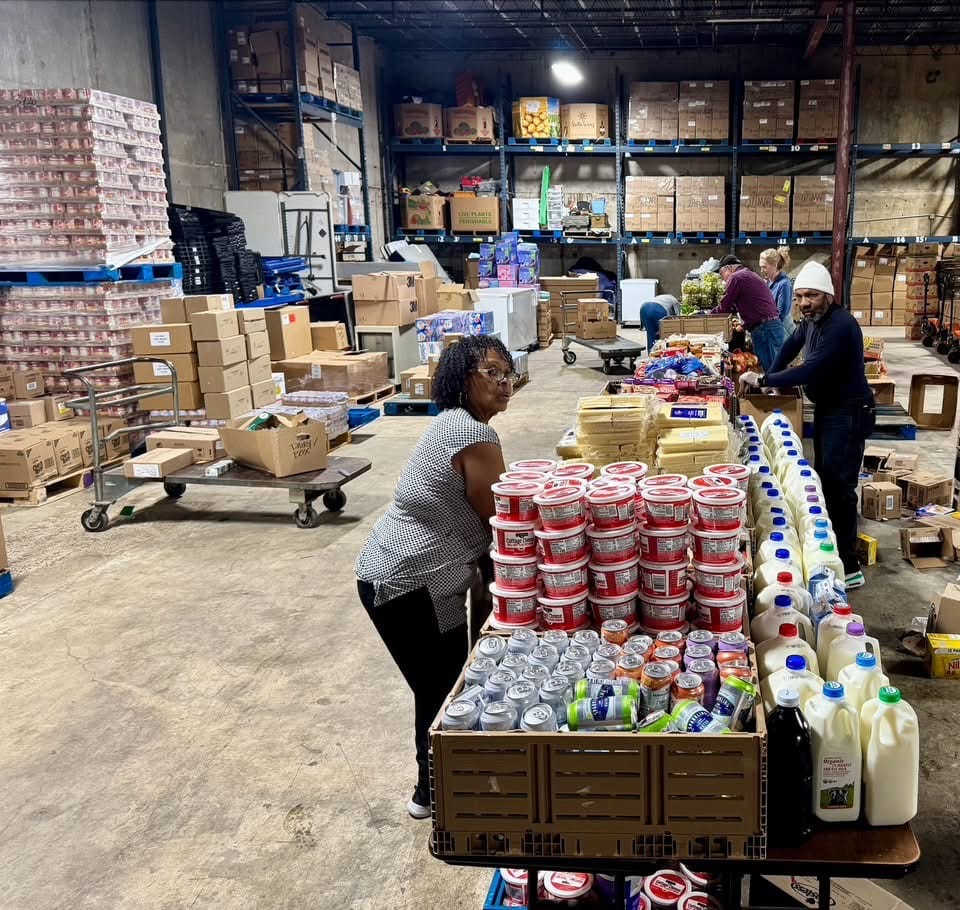
Beyond its own church and nonprofit programming, community-based partnerships have been established inside Mosaic’s building, a former Kmart. Since 2015, 10 Fitness has operated in 38,000 square feet of the facility. More recently, Divine Mercy Health Center opened a 2,400-square-foot primary care clinic offering mental health and addiction services for only $300 a month. John Brown University’s counseling clinic rents space there, too. In two years, the church plans to reopen offices for immigration services. These and other service providers have brought hope to a community in which some 24% of residents are living at or below the poverty line.
Other nonprofits have emerged from Vine and Village. Eric and Kara Gilmore started Immerse Arkansas with a heart for youth in crisis. That includes vulnerable youth who are aging out of foster care, homeless, or trafficking victims. “Youth can come here, and we’re going to help them with their needs and their dreams,” Eric says. “They can get food or get help getting a job. They can see a therapist. They can get help getting into college.” Immerse recently opened its own transitional living facility to help more youth in crisis become overcomers.
Last month, the church launched the Midtown Event Center, which offers space for a variety of community events.
The overarching goal of Mosaic’s ministry is community transformation. Mark says the church is “heavily engaged in justice, compassion, and merciful work in this community, helping to bring it back to life. And in so doing, demonstrate redemption, not just preach about it.”
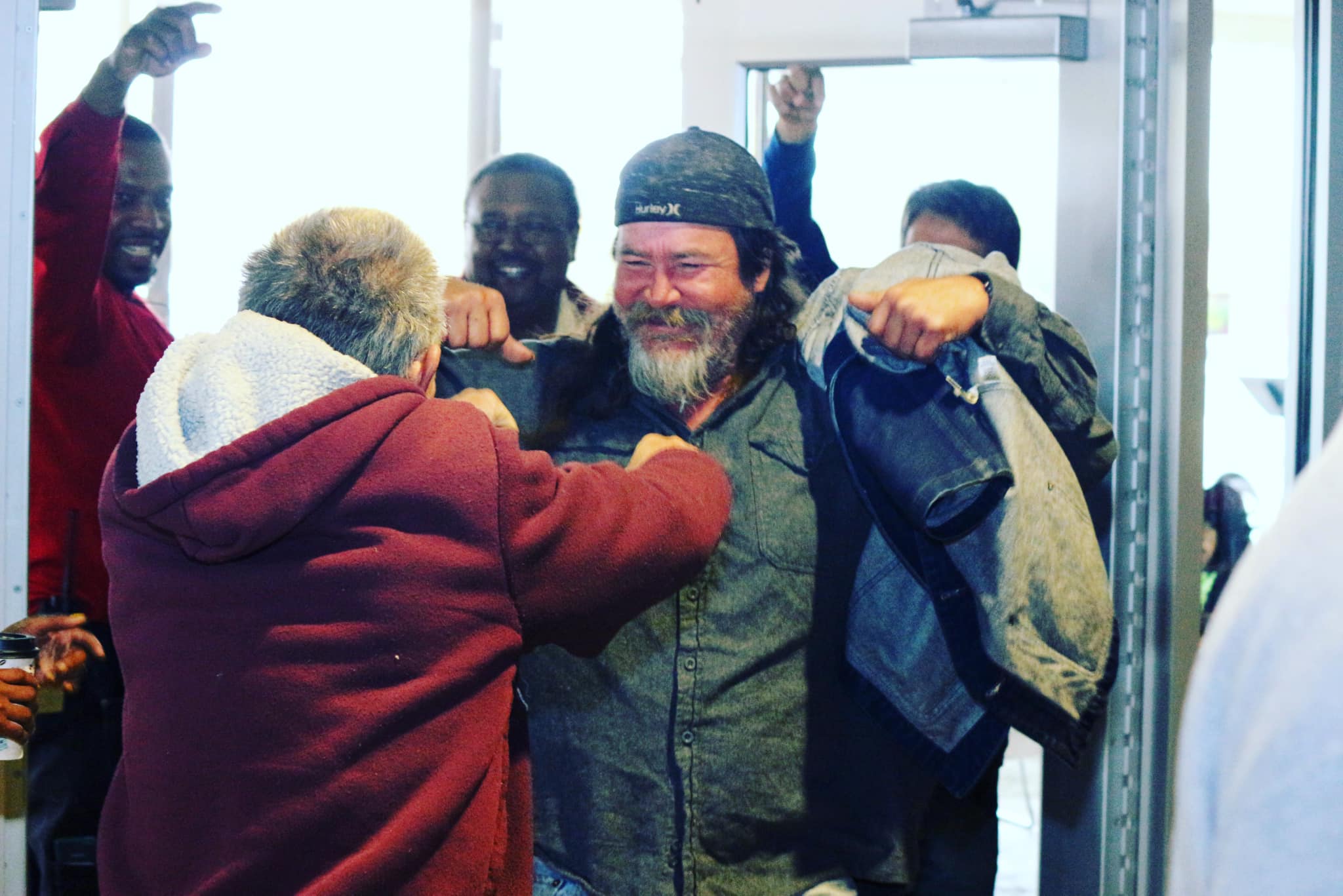
A 2008 study found that unless 335,000 square feet of abandoned or underused property in the area were restored, there was no hope of revitalizing the community. Mosaic has been responsible for bringing back 54% of that total. Others have joined the church in bringing the community back. Commercial developers revitalized the Village Shopping Center across the street from the church. “When we came here, there wasn’t a Walgreens. There was no Circle K, car wash, Waffle House, Wendy’s, or Captain D’s, and now, we’re getting a Starbucks right across the street. It only took 24 years,” Mark says.
In 2016, the church received the Economic Development Award from Arkansas’ Martin Luther King Jr. Commission, which recognized the church’s role in helping generate over $20 million of investment in the University District.
Stories of Changed Lives
Mosaic works with key partners like UALR to transform the University District because it’s their neighborhood, too. These are their neighbors they’re serving. And behind everything they do are stories of people who’ve been changed by a church that refused to give up on them.
Brian was in the grip of opioid addiction. He lived on the streets with his wife, Lisa, and their two teenage children. Brian came to The Orchard at Mosaic needing food. He wanted to change and asked to volunteer at the food distribution center. With community support, Brian got sober, transitioned into stable housing, and now works on the food distribution team. Today, Brian and his family are active members at Mosaic.
Donna and her family were living at a dangerous campsite. She was in her fifties and caring for her 73-year-old grandfather, who was suffering from dementia. When the team at Hope Center met Donna, they connected her to the Divine Mercy Health Center and social work services. This intervention put her family on the path to safety with medical and housing assistance.
For months, the only refuge Cassandra could find was at the Hope Center. She was living in a camp racked with opioid addiction. In December, she found out she was pregnant. Volunteers responded quickly, getting her access to prenatal care. With their help, Cassandra has remained sober and is working toward stable housing before her baby arrives.
Christy struggled with homelessness and addiction for over a decade. Her life changed when she visited The Orchard and showed interest in volunteering. With consistent support and access to care within Mosaic’s network, Christy overcame her meth and opioid addiction. Today, she works on the Vine and Village team and is a trusted voice in the homeless community.
Understanding the Signs of the Times
From the tribe of Issachar, there were 200 leaders of the tribe with their relatives. All these men understood the signs of the times and knew the best course for Israel to take.
1 Chronicles 12:32 (NLT)
In a culture that’s rapidly changing, Mosaic’s leadership knows churches must understand the changes and adapt. Demographics are shifting. So are social norms and opinions. Advances in knowledge and technology have reshaped everyday life. What worked yesterday doesn’t work today. What moved one generation doesn’t necessarily move the next.
While these changes can feel disorienting, they open the door for innovation—something Mosaic has embraced. “Men like the tribe of Issachar understood the times and knew what was the best course of action for Israel to take,” Mark says. “They thought deeply, they recognized their moment was different than the past, and they charted a new course for the nation. Now, pastors need to do that. The need is there. The possibilities and potential are there.”
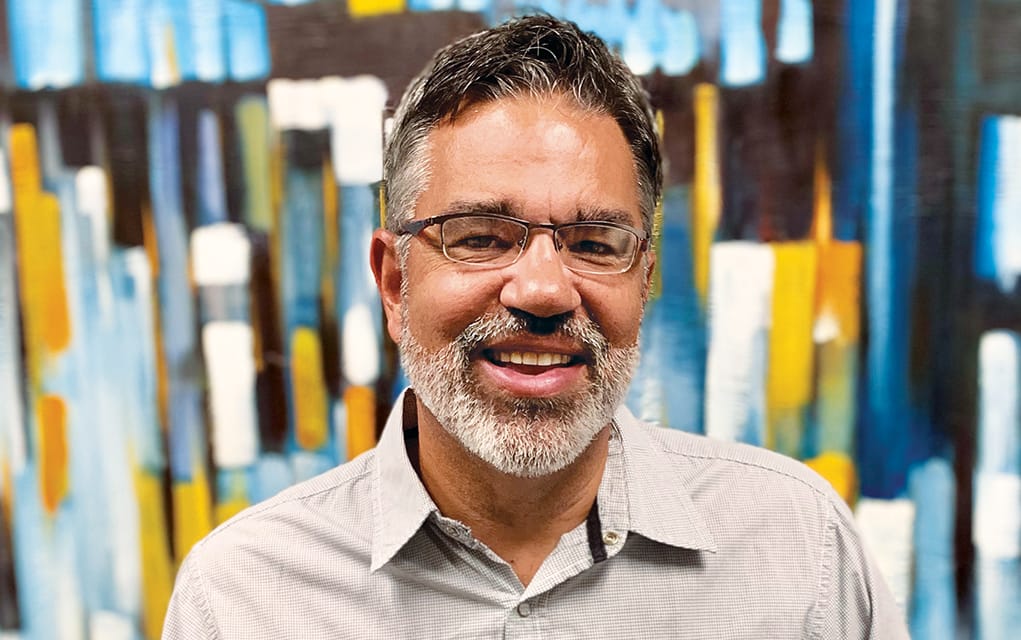
Mark uses football as an example of what their church structure looks like, adapted for the twenty-first century. “An American football team is actually made up of three teams—offense, defense, and special teams—and they have to be functioning independently but synergistically for the entire team to win.”
The offense is the spiritual team. They are the pastors and ministry leaders who love to teach, evangelize, lead worship, pray, and make disciples. It’s “all the people in your church who say things like, ‘I just have such a heart to teach children about Jesus.’ ‘I just have such a heart for prayer,’ and ‘I love to visit people in the hospital when they’re sick.’” The defense focuses on justice, compassion, and mercy work. This includes social workers, counselors, recovery specialists, and those who feed the homeless or work with at-risk kids.
Special teams are for business people and entrepreneurs who know how to make money and steward the church’s resources well. “This team is generating a return on investment. You have 1) members giving tithes and offerings; 2) local, state, and federal grants, as well as donations from other churches and the community at large; and 3) for-profit business income. The aggregate of those three main streams is how you not only survive but thrive to do more good and sustain the effort in the twenty-first century.”
This structure has helped Mosaic put the right people with the right skills on the right team for over twenty years. For them, it doesn’t make sense to put an offensive lineman at cornerback or a wide receiver at linebacker. Better to utilize the skills God has given His people in the areas where they are most effective.
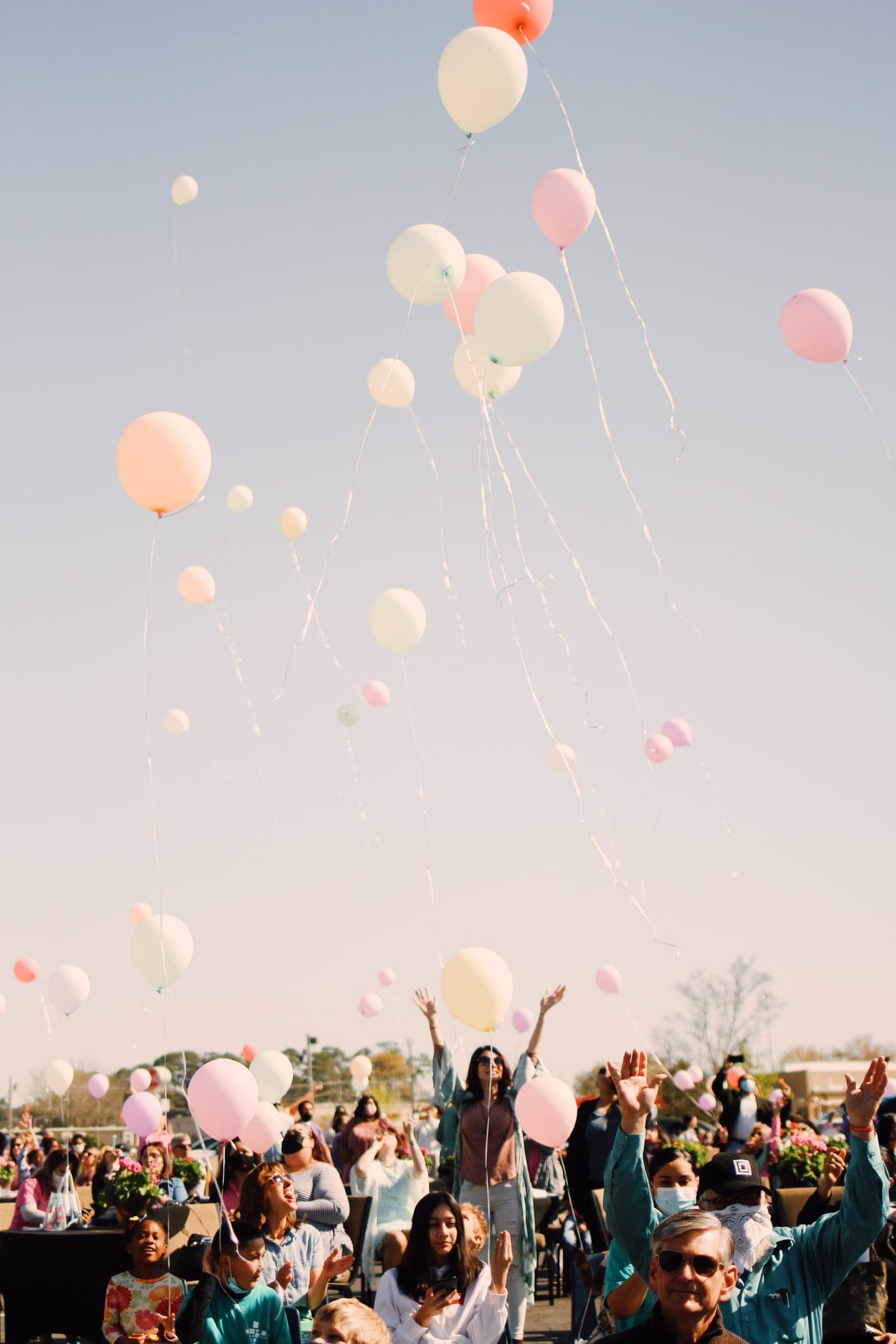
Pursuing Unity Together
Mosaic is doing great things in their corner of Little Rock. But believers there know it takes more churches working together to transform an entire city.
“What credibility would there be in a church like ours that says, ‘Hey, we got to walk, work, and worship God together as one’ if I refuse to talk to any other church? Cooperate with any other church?” Mark says. “To do this work, we have to take the diversity and the unity and push it out and make an impact—to bless the city, lead people to Christ, promote the greater good, and fulfill the Great Commission. No one church can fulfill the Great Commission. We have a responsibility to pursue unity with others throughout the city as well with other local churches and their pastors.”
We’re grateful for the exceptional work of Mosaic Church and other churches across Arkansas that are pursuing unity and bridging divides in Little Rock. They are helping the whole Church grow.
Speaking the truth in love, we will grow to become in every respect the mature body of him who is the head, that is, Christ. From him, the whole body, joined and held together by every supporting ligament, grows and builds itself up in love, as each part does its work.
Ephesians 4:15-16
